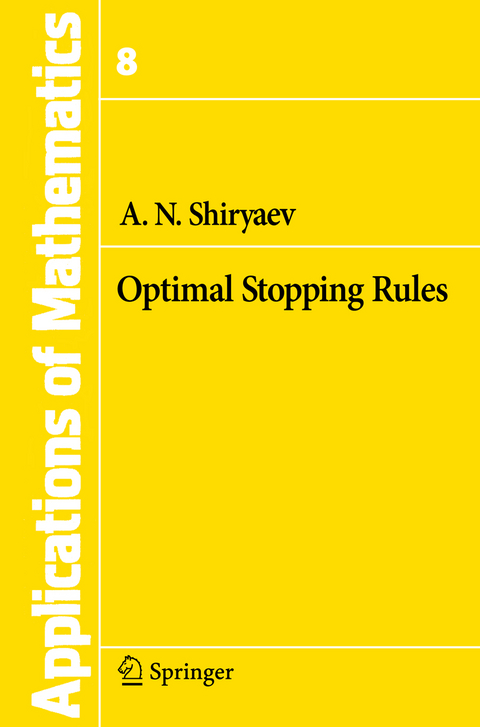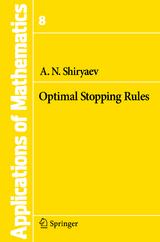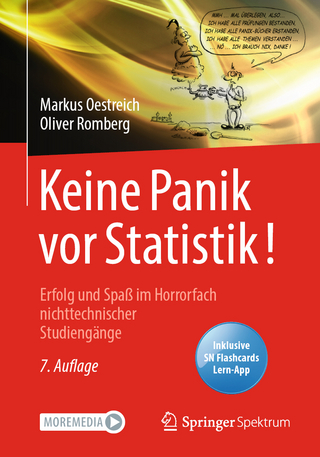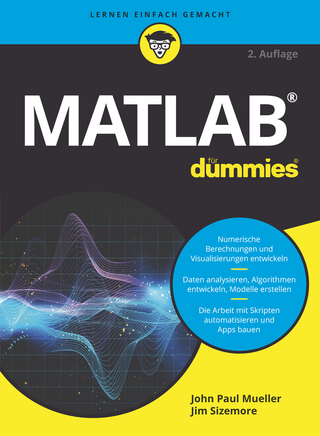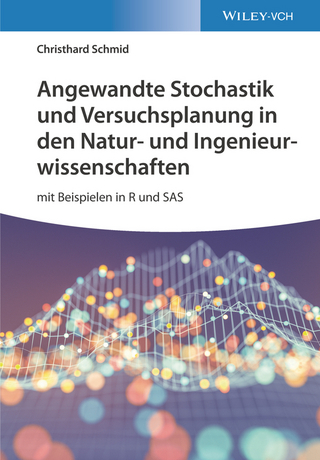Optimal Stopping Rules
Seiten
2007
|
1st ed. 1978. 2nd printing 2007
Springer Berlin (Verlag)
978-3-540-74010-0 (ISBN)
Springer Berlin (Verlag)
978-3-540-74010-0 (ISBN)
Along with conventional problems of statistics and probability, the - vestigation of problems occurring in what is now referred to as stochastic theory of optimal control also started in the 1940s and 1950s. One of the most advanced aspects of this theory is the theory of optimal stopping rules, the development of which was considerably stimulated by A. Wald, whose Sequential ~nal~sis' was published in 1947. In contrast to the classical methods of mathematical statistics, according to which the number of observations is fixed in advance, the methods of sequential analysis are characterized by the fact that the time at which the observations are terminated (stopping time) is random and is defined by the observer based on the data observed. A. Wald showed the advantage of sequential methods in the problem of testing (from independent obser- tions) two simple hypotheses. He proved that such methods yield on the average a smaller number of observations than any other method using fixed sample size (and the same probabilities of wrong decisions). Furth- more, Wald described a specific sequential procedure based on his sequ- tial probability ratio criterion which proved to be optimal in the class of all sequential methods. By the sequential method, as applied to the problem of testing two simple hypotheses, we mean a rule according to which the time at which the observations are terminated is prescribed as well as the terminal decision as to which of the two hypotheses is true.
Random Processes: Markov Times.- Optimal Stopping of Markov Sequences.- Optimal Stopping of Markov Processes.- Some Applications to Problems of Mathematical Statistics.
| Erscheint lt. Verlag | 7.11.2007 |
|---|---|
| Reihe/Serie | Stochastic Modelling and Applied Probability |
| Übersetzer | A.B. Aries |
| Zusatzinfo | XII, 220 p. 7 illus. |
| Verlagsort | Berlin |
| Sprache | englisch |
| Maße | 155 x 235 mm |
| Gewicht | 362 g |
| Themenwelt | Mathematik / Informatik ► Mathematik ► Wahrscheinlichkeit / Kombinatorik |
| Wirtschaft | |
| Schlagworte | Markov-Ketten • Markov process • Markov Processes • Mathematical Statistics • Observable • Optimal Stopping • Optimization • Statistics • stochastic optimization |
| ISBN-10 | 3-540-74010-4 / 3540740104 |
| ISBN-13 | 978-3-540-74010-0 / 9783540740100 |
| Zustand | Neuware |
| Haben Sie eine Frage zum Produkt? |
Mehr entdecken
aus dem Bereich
aus dem Bereich
Erfolg und Spaß im Horrorfach nichttechnischer Studiengänge
Buch | Softcover (2023)
Springer Spektrum (Verlag)
39,99 €
Buch | Hardcover (2023)
Wiley-VCH (Verlag)
99,00 €
